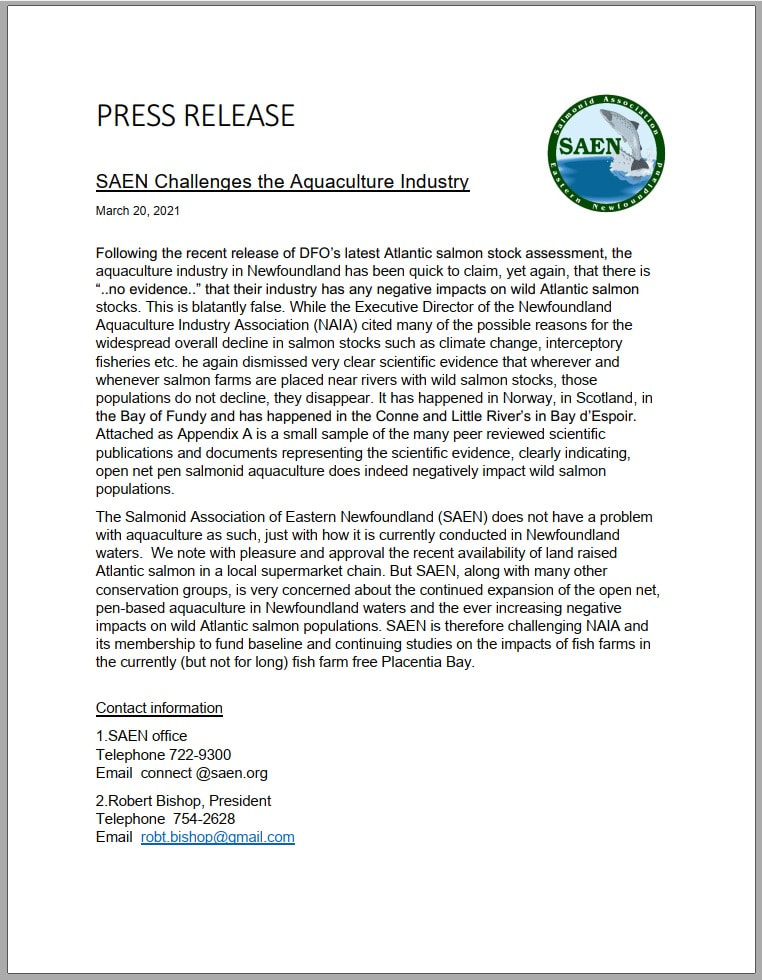|
Salmonid Association of Eastern Newfoundland
PRESS RELEASE SAEN Challenges Aquaculture Industries' False Claims March 20, 2021 Following the recent release of DFO’s latest Atlantic salmon stock assessment, the aquaculture industry in Newfoundland has been quick to claim, yet again, that there is “..no evidence..” that their industry has any negative impacts on wild Atlantic salmon stocks. This is blatantly false. While the Executive Director of the Newfoundland Aquaculture Industry Association (NAIA) cited many of the possible reasons for the widespread overall decline in salmon stocks such as climate change, interceptory fisheries etc. he again dismissed very clear scientific evidence that wherever and whenever salmon farms are placed near rivers with wild salmon stocks, those populations do not decline, they disappear. It has happened in Norway, in Scotland, in the Bay of Fundy and has happened in the Conne and Little River’s in Bay d’Espoir. Attached as Appendix A is a small sample of the many peer reviewed scientific publications and documents representing the scientific evidence, clearly indicating, open net pen salmonid aquaculture does indeed negatively impact wild salmon populations. The Salmonid Association of Eastern Newfoundland (SAEN) does not have a problem with aquaculture as such, just with how it is currently conducted in Newfoundland waters. We note with pleasure and approval the recent availability of land raised Atlantic salmon in a local supermarket chain. But SAEN, along with many other conservation groups, is very concerned about the continued expansion of the open net, pen-based aquaculture in Newfoundland waters and the ever increasing negative impacts on wild Atlantic salmon populations. SAEN is therefore challenging NAIA and its membership to fund baseline and continuing studies on the impacts of fish farms in the currently (but not for long) fish farm free Placentia Bay. About SAEN The Salmonid Association of Eastern Newfoundland (SAEN) was founded in 1979 as a volunteer, non-profit, conservation organization dedicated to the conservation, protection and enhancement of Atlantic salmon in Newfoundland and Labrador. Contact information 1.SAEN office Telephone 722-9300 Email connect @saen.org 2.Robert Bishop, President Telephone 754-2628 Email [email protected]
APPENDIX A A sample of research available
Further studies representing a small sample of what is available.
|
Copyright © Salmonid Association of Eastern Newfoundland

